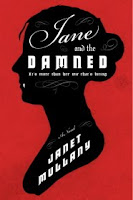It’s the eve of the Battle of Waterloo and we Riskies have been discussing offlist whether we should the battle again or not. The topic is both finite and infinite; there is so much material but for me it comes down to one fact that I wrote about here a couple of years ago here
Today I’m talking about the ordinary soldiers, the kids who signed up for the king’s shilling out of patriotism, were fooled by unscrupulous recruiters, or because they had so few options … One in four soldiers died that June day in 1815. Read more
Forget the ball and the Duke of Wellington and Napoleon and the dashing uniforms. One in four.
And that got me thinking about how we distill and sort historical information as writers and readers. What does the Regency represent to us?

 For instance it’s a period of fashion and elegance, fabulous clothes, gorgeous architecture and interior design. Yet the simplicity and gorgeous drape we associate with gowns of the period really belongs to an earlier era, well before the Regency proper (1811-1820), as does most of the classic Georgian architecture. Consider the evolution of fashion from this 1795 gown (right) to the fussiness of the 1822 one (left).
For instance it’s a period of fashion and elegance, fabulous clothes, gorgeous architecture and interior design. Yet the simplicity and gorgeous drape we associate with gowns of the period really belongs to an earlier era, well before the Regency proper (1811-1820), as does most of the classic Georgian architecture. Consider the evolution of fashion from this 1795 gown (right) to the fussiness of the 1822 one (left).
We also associate the period with a certain amount of freedom and glamor and the Romantics–except by the 18-teens it wasn’t a great time to be a poet, particularly a poet of radical leanings. Shelley and Byron fled the country, but more because of their scandalous personal lives than their writing (except their lives and writing and political beliefs were bound together).
Their friend Leigh Hunt, journalist and co-founder of the Examiner, a periodical that mixed radical politics and the arts, was imprisoned for two years in 1813 for saying rude, if true, things about Prinny.
In addition, Lord Liverpool’s government passed some extraordinarily repressive legislation cutting down on civil liberties as a result of the uproar that followed the 1819 Peterloo Massacre, when local militia cut down a peaceful demonstration in Manchester. As a sidenote, the city is seeking a more permanent tribute on the site, as reported by the Guardian:
One of the lasting memorials of Peterloo crosses the former site of St Peter’s Fields daily, tucked under the arms of passers-by or downloaded to their computers and iPods.
It is the Guardian itself, which was founded by a group of moderate Manchester reformers as a direct result of the massacre, when it became clear that demonstrations and direct action were not going to change the government’s mind on widening the vote.
The government’s reaction was to pass legislation in addition to the suspension of Habeas Corpus, the Six Acts of 1819:
- Training Prevention Act or Unlawful Drilling limited any sort of military training to local jurisdictions, punishable by transportation.
- Seizure of Arms Act gave local magistrates the authority to search any private property for weapons and to arrest the owners.
- Misdemeanors Act reduced opportunities for bail and allowed for speedier court processing.
- Seditious Meetings Prevention Act made meetings of fifty or more people illegal unless authorized by a sheriff or magistrate.
- Blasphemous and Seditious Libels Act. If Hunt had libeled Prinny in 1819 he could have been sentenced to fourteen years transportation.
- Newspaper and Stamp Duties Act imposed taxes on publications that published opinion in addition to those that published news, and publishers were required to post a bond for their behavior.
Yikes. Not exactly the land of the free.
How do you reconcile the historical truth with the fantasy when you’re reading or writing?
I’m blogging today at Supernatural Underground and giving away ARCs of Jane and the Damned as prizes, and there’s a Damned Good Contest on my site, plus various excerpts etc. Check it out!

To my mind, there’s room for a lot of different “Regencies.” I personally get a little impatient/frustrated when readers and writers talk about the Regency as this idyllic, gentler, and more glamorous time to escape to, because for me the sheer amount of conflict and upheaval is a large part of what makes the era so endlessly fascinating.
OTOH, we’ve been living through a lot of conflict and upheaval in our own time, at least since 2001, and yet I could easily write a perfectly realistic contemporary story that was peaceful and even idyllic, because it’s not like everyone at all moments is in the middle of the upheaval. I just think writers who want to write that kind of a story should at least check wikipedia and make sure there was nothing dramatic and impossible to ignore going on at the specific time of their story, and adjust the date accordingly if necessary.
That said, I do like the grit and conflict myself. As a writer, I just try to put in just enough glamor to get readers to follow me into the smoke of battle. 🙂
To be brutally honest, the land of Regency romance is where I indulge my more Tory-esque side, however teensy. The structure of teatime, proper dress and deportment, social hierarchy and restriction is a refreshing fantasy playground for me because my daily life and convictions could not be more disparate. Part of me LIKES a proper, regimented life of privilege, as long as it’s make-believe!
I actually try to write about the grittier part of the Regency, Janet. In my next book, coming in September, Chivalrous Captain, Rebel Mistress, begins at Hougoumont and ends with the discord of social unrest. Not the pretty side of the Regency at all.
I like all parts of the regency fantasy, the grim reality of life and the pretty protected lives of privilege. Just don’t show me sewage or disease or bugs and parasites.
I wonder if Regencies fit in along the line of chick lit. Or at least Regencies do. They talk about the dances (night clubs), dresses (designer clothing) and men (men) only in a different time period. There are a lot of horrible things going on in the world today and chick lit doesn’t even let it make a dent in anything.
I guess it depends how “serious” a book it is. I prefer the books I read be as accurate as possible with their historical details. It is of course more important when dealing with stories that incorporate historical events.
For a light story that is primarily relationship based I am much more likely to let the details slip through if they are a little off.
To be fair, if you were living in England during the early 19th century, the wars with France probably didn’t affect you very much. You certainly weren’t bombarded with war news all the time the way we are now. By the time news of a battle in Spain reached somebody living in a village in Northumberland months had passed. If you did not actually have a loved one in the army, the war might rarely impinge on your consciousness.
I am often amused when authors (especially those writing about spies) write as if England was united in a battle to the death against the Corsican tyrant. Aside from those who were more or less indifferent, there were quite a few who were on the side of the French Revolution and Napoleon.